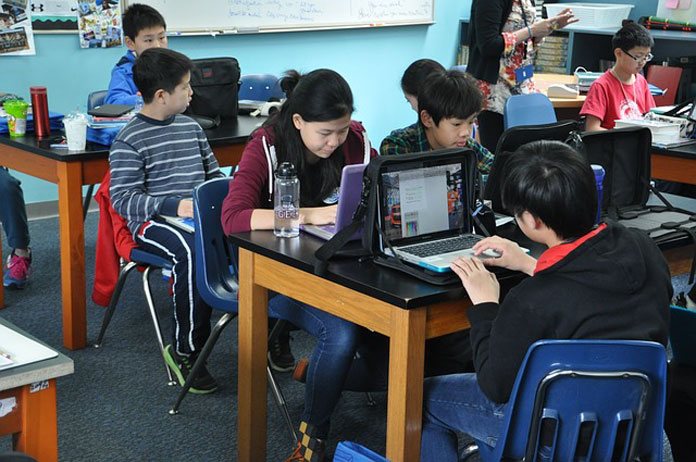Internet is available almost everywhere, from home, college, school and office. Most students use portable internet in classrooms. Well, using the Internet in the classroom has great benefits. But new research suggests that surfing the web on a laptop in class tends to result in poorer test scores.
Students spent the most time on social media, reading email, shopping for things like clothes, and watching videos. Their academic performance also suffered.
Researchers at Michigan State University studied laptop computer use in an introductory psychology course. They found that students spend a lot of time browsing the web for non-curricular purposes, 37 minutes.
Professor Susan Ravizza said, “Internet use was a significant predictor of students’ final exam scores even when their intelligence and motivation were taken into account.”
“Harmful relationship associated with non-academic Internet use. It raises questions about the policy of encouraging students to bring their laptops to class when they are not needed for class,” added the professor.
The scientists conducted research like a lecture lasting 1 hour and 50 minutes. They asked 507 students to participate in the research. But only 127 students agreed to participate, which involved logging into a proxy server when they were online.
Scientists measured students’ intelligence using ACT scores.
Nearly 83 students logged into the proxy server in more than half of the 15 course sessions during the semester and were included in the final analysis. Using the Internet for teaching purposes did not help students’ test scores.
Ravizza said, “I was not surprised. There was no online homework in this course. This means that most of the ‘academic use’ was downloading lecture slides to follow along or take notes.”
“In previous research, we have shown that taking notes on a laptop is not as useful for learning as writing notes by hand. Once students open their laptop, it will likely be tempting to do other types of Internet-based tasks. And those assignments are not relevant to the class,” she added.
“I even stopped posting lecture slides before class. Instead, I wait until the week before the exam to load them so there is no reason for students to bring a laptop to class.”
“Now I ask students to sit in the back if they want to bring their laptop to class. Therefore, their use of the Internet does not disturb other students,” she said.
